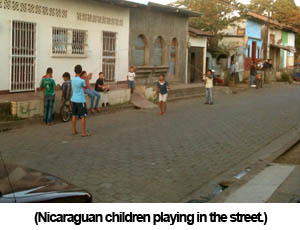
Aaron Roth – Edify.org – “Press on Toward the Goal” – May 2013
Hi family and friends, it’s been a whirlwind trip through Latin America these past five months. After being in Peru for almost two months, I returned briefly to the United States two weeks ago for a few meetings in Texas. Now I’m headed back to Nicaragua and Guatemala to help HOPE International with a few projects relating to savings groups. This newsletter is about one of the schools the Edify team and I visited in Peru. Blessings, -Aaron
- Download this email as a pdf: Aaron Roth – May. 2013 Update.pdf
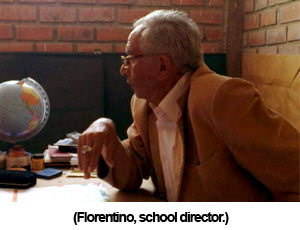 Edify worldwide – www.Edify.org
Edify worldwide – www.Edify.org - Archive: AaronRoth.net – Monthly Newsletters
“They told me ten years ago that there was no way anyone could start a school in this area with all the dirt and dust. It was too poor of a community and people wouldn’t pay me. In those days, I used to invite people to the area where I was planning on starting the school and they told me I was crazy. Even my family. So I stopped inviting people.”
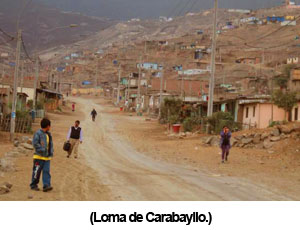
Florentino is the director and owner of his school, San Benito, a low-cost private school located in Loma de Carabayllo, a very economically poor district of northern Lima. Florentino is from the jungle in the northern area of Peru. When people describe Peru they list four areas: the mountains, the jungle, the coast and the central area. If you don’t live in the central area or by the coast, there aren’t many opportunities for jobs or for education. Parents will do whatever they can to ensure that their children receive the best possible education.
In Florentino’s case, his parents worked diligently to send him to a university in central Lima because that’s where the only universities were. After working for a few years in the city to make money, he came back to the jungle to start a bilingual school. It’s not the traditional sense of a bilingual school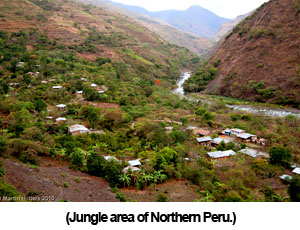 as we think of it being English and Spanish. Instead, his bilingual school was Spanish and Quechua, the native language to those who live in the rural areas and the jungle.
as we think of it being English and Spanish. Instead, his bilingual school was Spanish and Quechua, the native language to those who live in the rural areas and the jungle.
After his success with the first school in his hometown, he wanted to pursue his dream of starting a large school in one of the northern districts of Lima. With his experience as a director and an entrepreneur, it may seem like he would have no problem being equally successful in this endeavor, but trying to start a school in a poor area like this can be incredibly difficult.
He told us that in Loma de Carabayllo, land was going at approximately US $5 a foot. That may seem like a deal to us, but it also signals that the area is so poor, that any new business, let alone a private school, would have difficulty securing solid income. When you look around this area you can see why the land prices are so cheap. There is nothing but dirt and rock. It’s not suitable for farming or mining or any other activity. The land is cheap because it’s a desert.
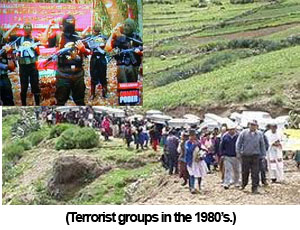 Florentino has a unique story to us, one of a true entrepreneurial bootstrapper, but his journey from the jungle to the center of Lima has become more common over the past few years. As the director of a local microfinance organization told us, “Lima is our ‘American Dream.’ To get a job and raise a family in Lima is what millions of Peruvians aspire to do.”
Florentino has a unique story to us, one of a true entrepreneurial bootstrapper, but his journey from the jungle to the center of Lima has become more common over the past few years. As the director of a local microfinance organization told us, “Lima is our ‘American Dream.’ To get a job and raise a family in Lima is what millions of Peruvians aspire to do.”
With Lima being a capital of 8-9 million people, there are an incredible amount of opportunities for work and for education, ones that simply do not exist in the areas outside of the major cities. During the past 30 years, there has been a tremendous influx of immigrants to the central region because of terrorism in many of the surrounding provinces. Initially, this terrorism was caused by two anti-government groups: Túpac Amaru Revolutionary Movement and Shining Path (a leftist military group ) and they were so destructive and intimidating in the outlying provinces, that many of the inhabitants fled to Central Lima. Even now, it’s easy to notice how the rapid emigration has left many without permanent homes as many people are still living in makeshift structures that consist of wood or scrap materials.
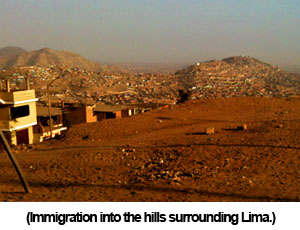 Florentino opened up his school ten years ago, more than 50 students were initially enrolled, and his staff tried to keep up with demand. He tells us that the parents wanted their kids in schools but didn’t want to pay the $8 monthly fee for a private education. Undeterred, Florentino didn’t give up, and persevered in the first few years to enroll more and more students and work with parents to pay an adequate amount so that he could staff the school.
Florentino opened up his school ten years ago, more than 50 students were initially enrolled, and his staff tried to keep up with demand. He tells us that the parents wanted their kids in schools but didn’t want to pay the $8 monthly fee for a private education. Undeterred, Florentino didn’t give up, and persevered in the first few years to enroll more and more students and work with parents to pay an adequate amount so that he could staff the school.Today, Florentino’s school has 275 students and it continues to grow. It is known as the most affordable and best quality school in the area. What impresses me most about Francisco is not only his perseverance, but his commitment to doing things well. When we asked him about his plans for the next five years, he laid out his desires simply:
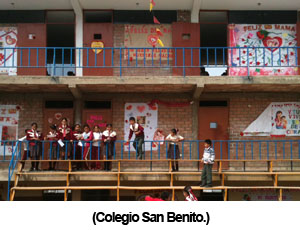 “I’m not so worried about getting to a specific number, or having another school. I want these children to have a quality education, and that means finishing the science lab. Later, I’ll continue to expand the computer room. It’s my duty to provide them with a solid education.”
“I’m not so worried about getting to a specific number, or having another school. I want these children to have a quality education, and that means finishing the science lab. Later, I’ll continue to expand the computer room. It’s my duty to provide them with a solid education.”
Essentially, his vision has remained unchanged since the beginning. He’s never given up despite what detractors had said (even his family!) and has persisted year after year to do what God has called him to – press on toward the goal of good education in the community where he’s called to be.
Not that I have already obtained all this, or have already arrived at my goal, but I press on to take hold of that for which Christ Jesus took hold of me. Brothers and sisters, I do not consider myself yet to have taken hold of it. But one thing I do: Forgetting what is behind and straining toward what is ahead. (Philippians 3:12-13 NIV)
I pray that you are pressing on toward the goal that the Lord has given you.
Blessings to you and your family,
-Aaron

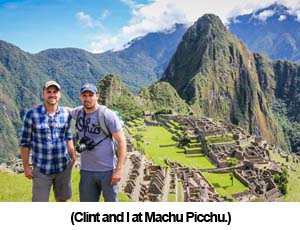 Edify worldwide –
Edify worldwide – 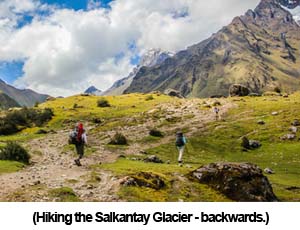 Clint and I, both sitting down to rest our lungs, commented on how true that observation was. Machu Picchu sits on a small mountaintop in the cradle of the behemoths surrounding it, a man-made anomaly almost eclipsed by the view of towering giants. You really have to hike up a ways to see this and appreciate the true nature of its location. We started out with the intention of reaching the Machu Picchu Mountain summit, but chose to return after more than an hour of steep hiking. We had already climbed 1,500 feet in 40 min at about 5:00am earlier that morning and we needed a break.
Clint and I, both sitting down to rest our lungs, commented on how true that observation was. Machu Picchu sits on a small mountaintop in the cradle of the behemoths surrounding it, a man-made anomaly almost eclipsed by the view of towering giants. You really have to hike up a ways to see this and appreciate the true nature of its location. We started out with the intention of reaching the Machu Picchu Mountain summit, but chose to return after more than an hour of steep hiking. We had already climbed 1,500 feet in 40 min at about 5:00am earlier that morning and we needed a break.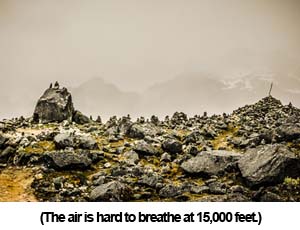 breathe as I did walking up that mountain.
breathe as I did walking up that mountain.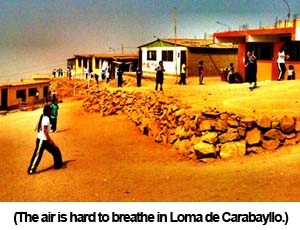 those initiatives, we also provide teacher training so that the schools improve their level of education and stay competitive nationally. Most of these schools charge about $25-40 a month, or roughly $1-$2 a day. This may not sound like a lot to us, but this is an enormous struggle for parents. They pay it because they know the alternative is that their child will be crammed in a classroom with 35 to 40 other students. Very little attention will be paid to their son or daughter, and they probably won’t progress even in the most basic of subjects: reading and writing.
those initiatives, we also provide teacher training so that the schools improve their level of education and stay competitive nationally. Most of these schools charge about $25-40 a month, or roughly $1-$2 a day. This may not sound like a lot to us, but this is an enormous struggle for parents. They pay it because they know the alternative is that their child will be crammed in a classroom with 35 to 40 other students. Very little attention will be paid to their son or daughter, and they probably won’t progress even in the most basic of subjects: reading and writing. ,000) students, they’ve run out of adequate bathroom space and finances to build more bathrooms, which also means the children will wait another year or two before they can pave the recess area to deal with the tremendous amount of dirt and dust kicked up in the air.
,000) students, they’ve run out of adequate bathroom space and finances to build more bathrooms, which also means the children will wait another year or two before they can pave the recess area to deal with the tremendous amount of dirt and dust kicked up in the air.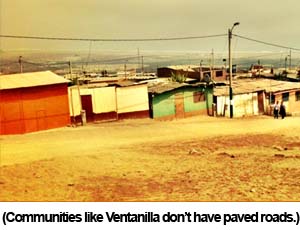
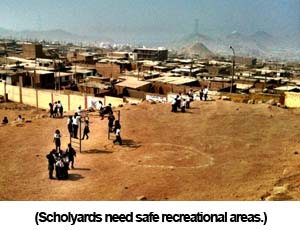


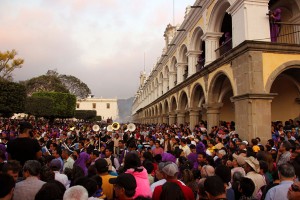
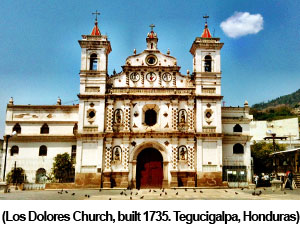 Edify worldwide –
Edify worldwide – 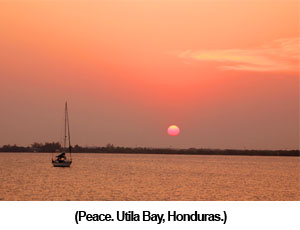 safety where I live, but I just found that difficult in Honduras. For one, everything closes at 6:00 or 7:00pm due to the danger of theft or robbery in the evening. Banks stop taking deposits at 4:00pm, and close their heavy doors at 5:00. Everything is guarded by private security with weapons, even the Burger King.
safety where I live, but I just found that difficult in Honduras. For one, everything closes at 6:00 or 7:00pm due to the danger of theft or robbery in the evening. Banks stop taking deposits at 4:00pm, and close their heavy doors at 5:00. Everything is guarded by private security with weapons, even the Burger King.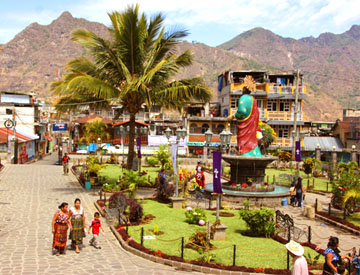
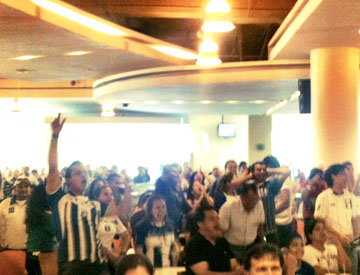

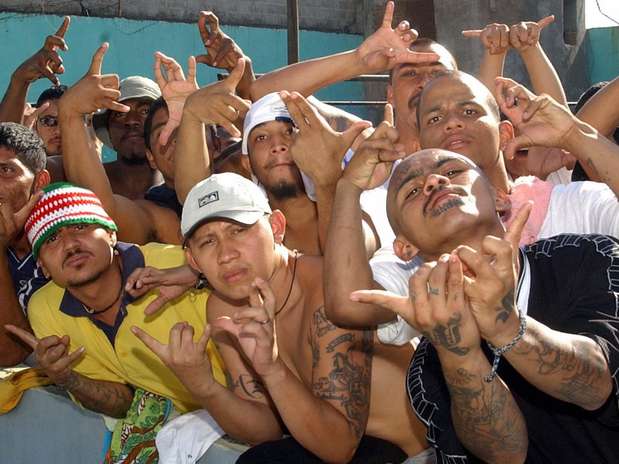
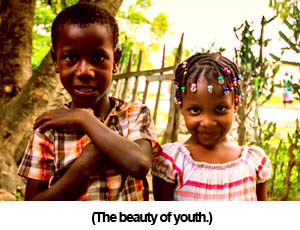 where I encountered similar initial negative stereotypes:
where I encountered similar initial negative stereotypes: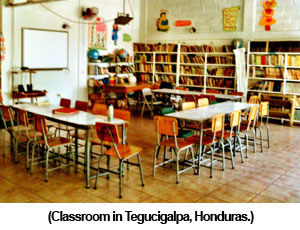 reason Honduras is a difficult place to live and travel gives us even more cause to help bring hope and Christian witness to difficult areas.
reason Honduras is a difficult place to live and travel gives us even more cause to help bring hope and Christian witness to difficult areas.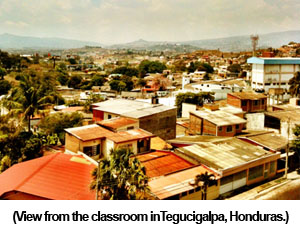

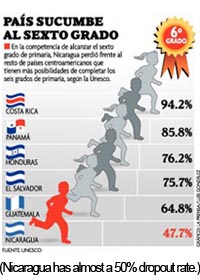 Edify worldwide –
Edify worldwide – 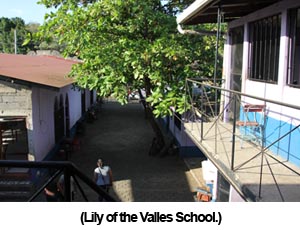 y that question over and over in my mind when I visit yet another private school and the teachers tell me that when students come from public schools and enter seventh and eighth grade and still don’t know how to read or write. It would be understandable if the children were in primary school, but to pass through seven or eight grades without learning, that’s alarming. In fact, much of the developing world, an estimated 793 million illiterate adults struggle with illiteracy.
y that question over and over in my mind when I visit yet another private school and the teachers tell me that when students come from public schools and enter seventh and eighth grade and still don’t know how to read or write. It would be understandable if the children were in primary school, but to pass through seven or eight grades without learning, that’s alarming. In fact, much of the developing world, an estimated 793 million illiterate adults struggle with illiteracy.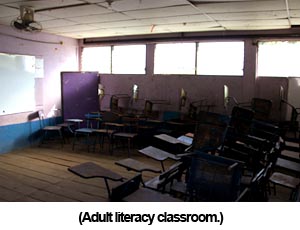 a bit shocking.
a bit shocking.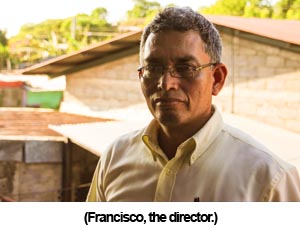 Francisco comes back with a stack of certificates, newly stamped with the seal of approval from the Ministry of Education. His private Christian school is now recognized by the Nicaraguan government as meeting their national standards of literacy training. I’m flipping through the names on these awards and realizing that with each new name I see, this represents a new life for the individual. For a mom or a dad, they now have the ability to help their kids with their homework, find a better job, and read aloud to their kids at night furthering the beautiful bloom of knowledge in their household.
Francisco comes back with a stack of certificates, newly stamped with the seal of approval from the Ministry of Education. His private Christian school is now recognized by the Nicaraguan government as meeting their national standards of literacy training. I’m flipping through the names on these awards and realizing that with each new name I see, this represents a new life for the individual. For a mom or a dad, they now have the ability to help their kids with their homework, find a better job, and read aloud to their kids at night furthering the beautiful bloom of knowledge in their household.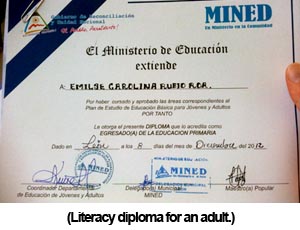 I think it’s because we both realize a simple yet incredibly profound thing has transpired. Even though nobody was there when he was a child, he is present now for the children. Even though no one had the money for him to go to school, he has found a way to provide for others. Even though he and his family lived many kilometers away, they found a house closer to the school to provide weekend classes.
I think it’s because we both realize a simple yet incredibly profound thing has transpired. Even though nobody was there when he was a child, he is present now for the children. Even though no one had the money for him to go to school, he has found a way to provide for others. Even though he and his family lived many kilometers away, they found a house closer to the school to provide weekend classes.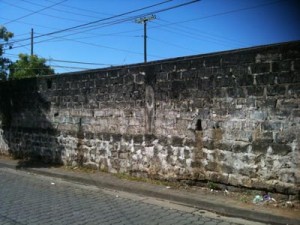

 HOPE International’s internship and fellowship opportunities are designed for individuals seeking to develop spiritually and professionally, while gaining valuable experience. HOPE interns and fellows enjoy the benefits of a challenging and meaningful opportunity, while working in a spiritually nurturing environment. During this opportunity, you will experience spiritual formation, professional enrichment, and significant involvement.
HOPE International’s internship and fellowship opportunities are designed for individuals seeking to develop spiritually and professionally, while gaining valuable experience. HOPE interns and fellows enjoy the benefits of a challenging and meaningful opportunity, while working in a spiritually nurturing environment. During this opportunity, you will experience spiritual formation, professional enrichment, and significant involvement.
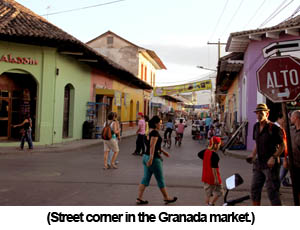 Edify worldwide –
Edify worldwide – 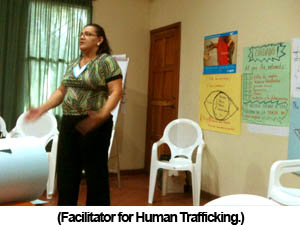 don’t know exactly where this local woman had gotten such a large bill, but I think I can connect the dots in this particular situation. Like in many impoverished countries, with the high frequency of tourism and enormous economic poverty, women sometimes engage in prostitution. I don’t want to give you the impression that this is what Nicaragau is like throughout the country or what it should be known for. That would not be true, nor would it be a fair representation to the beautiful countryside and Nicaraguan culture I have come to enjoy over the past month. Indeed, it is a complicated issue, an economic pressure driven by the divide between the rich who are in power limiting free market commerce from taking shape and the desperate poor waiting for more jobs.
don’t know exactly where this local woman had gotten such a large bill, but I think I can connect the dots in this particular situation. Like in many impoverished countries, with the high frequency of tourism and enormous economic poverty, women sometimes engage in prostitution. I don’t want to give you the impression that this is what Nicaragau is like throughout the country or what it should be known for. That would not be true, nor would it be a fair representation to the beautiful countryside and Nicaraguan culture I have come to enjoy over the past month. Indeed, it is a complicated issue, an economic pressure driven by the divide between the rich who are in power limiting free market commerce from taking shape and the desperate poor waiting for more jobs.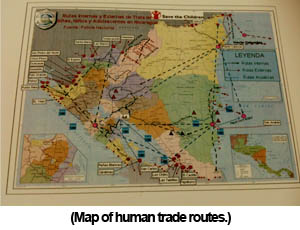 Progress may be slow, but it is arriving.
Progress may be slow, but it is arriving.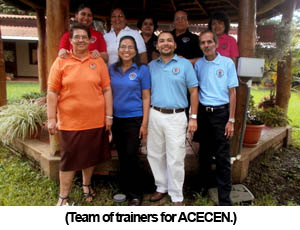 With Edify I have been visiting schools and meeting with organizations like ACECEN to see if they’d be a good partner for Edify as they currently work with Christian schools in Nicaragua. ACECEN “promotes the development and improvement of Christian schools, preparing students to excel professionally based on biblical principles so that they become agents of transformation in society.”
With Edify I have been visiting schools and meeting with organizations like ACECEN to see if they’d be a good partner for Edify as they currently work with Christian schools in Nicaragua. ACECEN “promotes the development and improvement of Christian schools, preparing students to excel professionally based on biblical principles so that they become agents of transformation in society.”